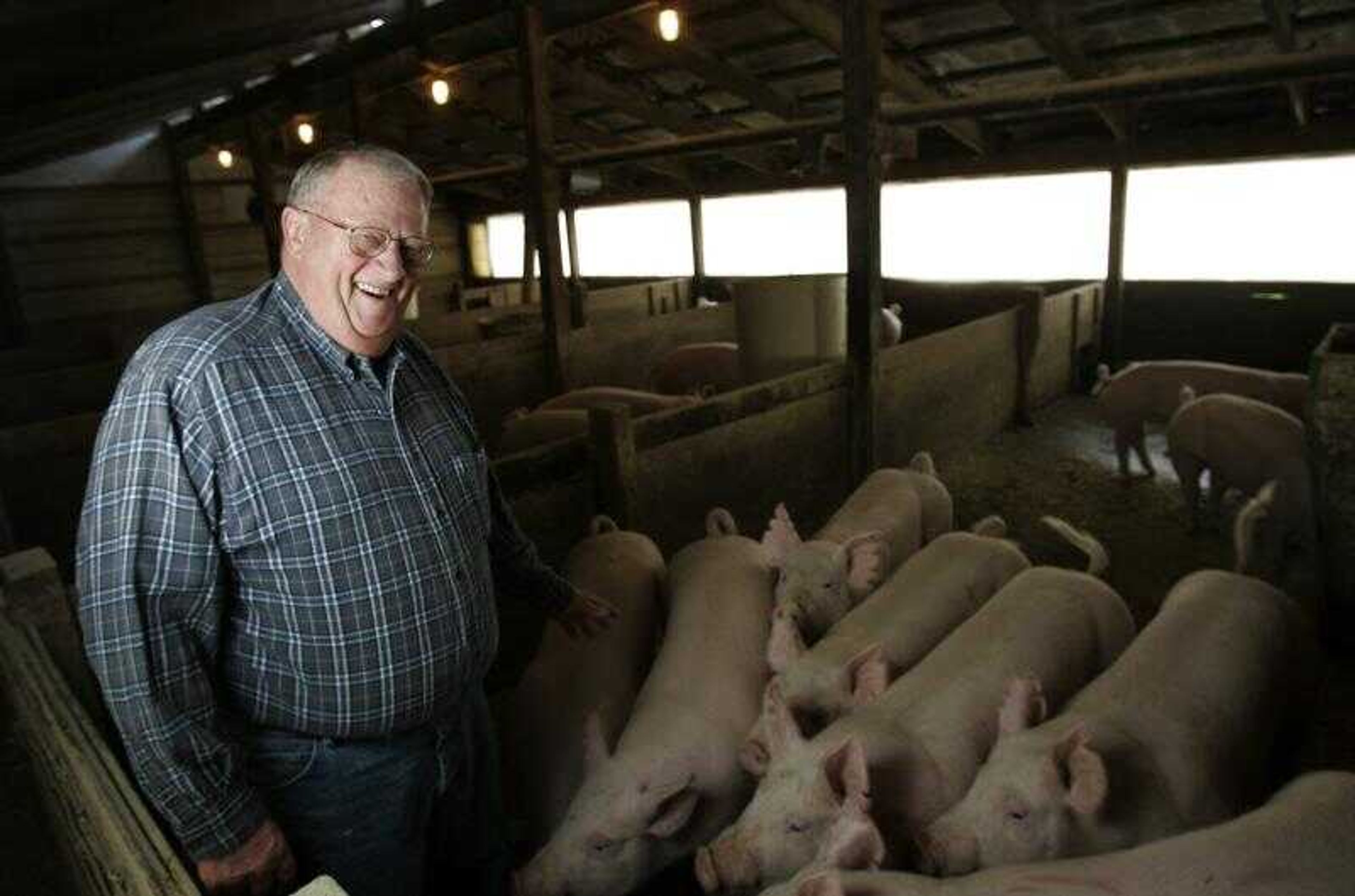More Midwestern businesses get boost in China markets
GREENVILLE, Ohio -- Eight years ago, China was just another foreign country on the map to farmer Bill Funderburg. Now, the Chinese buy nearly half of the 3,000 breeding hogs he raises each year on his western Ohio farm. "They're our No. 1 customer," he said. "Lately, it's been very, very good."...
GREENVILLE, Ohio -- Eight years ago, China was just another foreign country on the map to farmer Bill Funderburg. Now, the Chinese buy nearly half of the 3,000 breeding hogs he raises each year on his western Ohio farm.
"They're our No. 1 customer," he said. "Lately, it's been very, very good."
The Chinese boom is translating into jobs for Rust Belt communities that have taken their economic lumps, even as critics point to a trade gap with China that is projected to grow 12 percent to $228 billion this year. China also has the second largest holdings of Treasury securities among foreigners who have 45 percent of $1.96 trillion total that is publicly traded.
Companies say the payoff for the jet engines, books and ink cartridges being sold to China outweighs the difficulties of doing business in the country, including cultural barriers, tariffs and limited distribution systems.
Peoria, Ill.-based Caterpillar Inc. has increased its exports by 40 percent in the past few years. A $58 million contract to supply China with generators that capture methane gas from coal mines and convert it into electricity means more jobs at Caterpillar's plants in Lafayette, Ind., and Griffin, Ga.
Summitville Tiles Inc. in eastern Ohio is supplying ceramic tiles for the floors of KFC restaurants that are popping up in China at a 400-stores-a-year clip.
"Any time that you are shipping millions of square feet of product, it is significant and it has helped keep workers in my factory working," said company President Dave Johnson.
China's economy is sizzling as it continues to move toward a market-based system, permitting small-scale enterprise and fostering foreign investment.
U.S. companies exported $41.8 billion in goods to China in 2005, up from $16.3 billion in 2000. The 157 percent growth far outstripped the 21 percent jump in U.S. exports to the Netherlands -- the second largest increase -- and catapulted China up to the fourth largest U.S. export market, behind Canada, Mexico and Japan.
"The Chinese market is growing so rapidly that everybody's trying to get a piece of it," said Beno Chan, a Fairfield, Conn.-based businessman who has helped U.S. companies get into the Chinese market.
The boom has been especially sweet to Midwestern states.
Ohio -- which has lost about 167,000 jobs in the past six years -- had $934 million in exports to China in 2005, a 220 percent increase from 2000.
Illinois, which lagged behind the rest of the country in income and employment growth following the 2001 recession, has seen its exports jump to $1.2 billion, more than twice the $533 million in 2000.
MTS Systems Corp., an Eden Prairie, Minn.-based company that makes equipment that tests the performance and durability of everything from planes to orthopedic joints, expects to as much as triple its 25-person work force in China because sales there have picked up.
In September, Acura TL luxury cars made at Honda Motor Co.'s plant in Marysville went on sale in China for the first time. The country now accounts for 10 percent of the sales for Vernay Laboratories, a Yellow Springs-based company that sells China auto fuel-pump valves and ink cartridges for desktop printers.
The market began to open to U.S. exports in 2001 after the Chinese joined the World Trade Organization to help generate their own economic growth. Before that, U.S. companies faced high import tariffs, quotas, were required to get import licenses and were forced to use Chinese companies to service their products.
Today, tariffs have decreased, import licenses and quotas have all but disappeared, and U.S. companies often don't have to use Chinese companies for service.
Some U.S. businesses got their start in China by making contacts through agents the companies hired to find export opportunities or by selling to the Chinese government or universities and expanding to the private sector.
Summitville Tiles got the contract with KFC after finding success selling tiles that could not be replicated in China to McDonald's restaurants there, Johnson said.
Increasing sales in China can be hard because companies must market their products to a public with little knowledge of the company name or reputation, and they often have trouble quickly developing relationships with their Chinese manufacturing partners.
In addition, they don't have the same protections of their intellectual property as their do in the U.S. and must rely on Chinese distribution channels, which are often limited.
And the Chinese can be a tough sell. Funderburg has to host a delegation of Chinese officials, farmers and veterinarians on his farm before they will buy his hogs. And the Chinese require extensive testing of the animals.
"It about makes me sick when I get my vet bill," Funderburg said. "It's very good money. But you have to jump through all those hoops to get there."
U.S. companies acknowledge that a political shift could make China more closed to their products. Democrats, who won control of Congress in recent elections, tend to be aggressive critics of Chinese trade policies.
"In the long run I believe market demands -- and these are huge -- will outstrip political issues," MTS CEO Chip Emery said.
Still, some businesses worry whether their success in China will hold.
"I don't know how long it will last, but it's wonderful while it has lasted," said Johnson.
Connect with the Southeast Missourian Newsroom:
For corrections to this story or other insights for the editor, click here. To submit a letter to the editor, click here. To learn about the Southeast Missourian’s AI Policy, click here.









